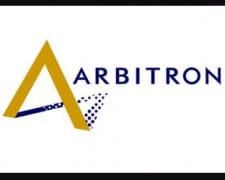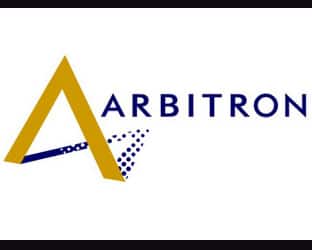 The owner of 3 Daughters Media stations in the Roanoke-Lynchburg, VA penned a letter to the FCC, FTC, DOJ and Arbitron CEO Sean Creamer, claiming Arbitron’s new Total Line Reporting of radio listening policy is unfair because it limits the reporting to only the stations that subscribe to Arbitron. Those that don’t won’t get translator simulcast listening added into their ratings calculations. As well, only licensed subscribing stations will be eligible to combine audiences for their stations and online streams that are 100% simulcast on a single reporting line. The change is planned for 2014. Right now, stations simulcasting 100% of their programming and commercials are eligible for the combined reporting regardless of subscriber status.
The owner of 3 Daughters Media stations in the Roanoke-Lynchburg, VA penned a letter to the FCC, FTC, DOJ and Arbitron CEO Sean Creamer, claiming Arbitron’s new Total Line Reporting of radio listening policy is unfair because it limits the reporting to only the stations that subscribe to Arbitron. Those that don’t won’t get translator simulcast listening added into their ratings calculations. As well, only licensed subscribing stations will be eligible to combine audiences for their stations and online streams that are 100% simulcast on a single reporting line. The change is planned for 2014. Right now, stations simulcasting 100% of their programming and commercials are eligible for the combined reporting regardless of subscriber status.
Arbitron defines it as: “Stations that simulcast 100% throughout the report period, and that meet Minimum Reporting Standards, are eligible for Total Line Reporting. Audience estimates for stations that receive Total Line Reporting are reported as a total line that combines the estimated audience of all stations in the combo. The total line is listed with the call letters of one station in the combo (the “primary” station), designated in advance by the combo. Estimates for individual stations in combos that receive Total Line Reporting are not included in any syndicated Arbitron reporting service.”
Burns is requesting the FCC “revisit their policy of using Arbitron-defined markets, outsourced to BIA, vs. Census Bureau SMSA designations as the way to define how many stations are in a market for the purposes of ownership limits.”
He is asking the FTC and DOJ to require that all measured entities be treated equally without regard to whether it is a paid subscriber to the service.
The letter from Burns:
“I take strong exception to the recently announced change in policy by Arbitron as it pertains to Total Line Reporting of listening, which as of 2014, will only apply to stations that pay for and subscribe to the Arbitron service. Application of the proposed rule will result in different methodology for stations in the same survey and will change the ranking of stations. Stations most likely to incur damages as a result of this new policy are stations with limited coverage, stations owned by small business and minorities. Measurement of radio listening in metro markets should be subject to the same methodology and rules for every station qualified to be in the measured market.”
When the Federal Communications Commission designated Arbitron as the ‘definer’ of radio markets for the purpose of determining how many stations an individual station owner could operate in a given radio market it put too much power in the hands of the rating company and subsequently to the stations that subscribe to the Arbitron service. Arbitron subscribers alone decide which counties are included in the market’s definition. A good case in point is the market where I operate radio stations, Roanoke-Lynchburg. Roanoke and Lynchburg are separate SMSA’s as defined by the government. The cities are 60 miles apart, separated by the Blue Ridge Mountains, are in different telephone area codes, are served by different daily newspapers, have over the air network affiliated television stations that are licensed to each city, have more than ten (10) radio stations licensed to each city and they share no government services or elected officials except for one gerrymandered congressional district , two Senators and the common shared benefits of both being in the Commonwealth of Virginia.
Of the Arbitron subscribers In Roanoke-Lynchburg, Total Line Reporting affects Wheeler and WVBE on 3 stations and a translator, WFIR on 1 station and a translator, Clear Channel, WSFF on 2 stations and WJJS FM on 2 stations. Non subscribers in the affected market are 3 Daughters Media WGMN on 3 stations and a translator, Lynchburg Radio Group WZZU on 2 stations, and WKHF on 2 stations. Because of the market definition Class A FM and AM stations licensed to Roanoke or Lynchburg cannot cover the entire market.
“The Arbitron Company and the Nielsen Company have announced a merger pending regulatory approval. Big is about to become massive. Arbitrary policies set by these companies can and will have unintended consequences in the marketplace. The new policy in radio for Total Line Reporting is just one example.
“I am formally requesting that the Federal Communications Commission revisit their policy of using Arbitron defined markets Vs Census Bureau SMSA designations, outsourced to BIA, as the way to define how many radio stations are in a market for the purposes of ownership limits. Especially considering that subscribing stations and not a regulatory agency get to decide the definition of the market.
I am formally requesting that the Department of Justice and the Federal Trade Commission require that all measured entities be treated equally without regard to weather a measured entity is a paid subscriber to the service and all of the other ramifications of this merger before allowing it to close.”
Arbitron declined comment for the story.
RBR-TVBR observation: Burns has a strong point here. We get it that it costs more to tally up Total Line Reporting numbers in this age of simulcasts and translators across sprawling markets, but the ratings company has to be fair to broadcasters that cannot afford the service. In fact, Arbitron may be doing a disservice to media agency clients that need the right numbers to make their buying decisions.





